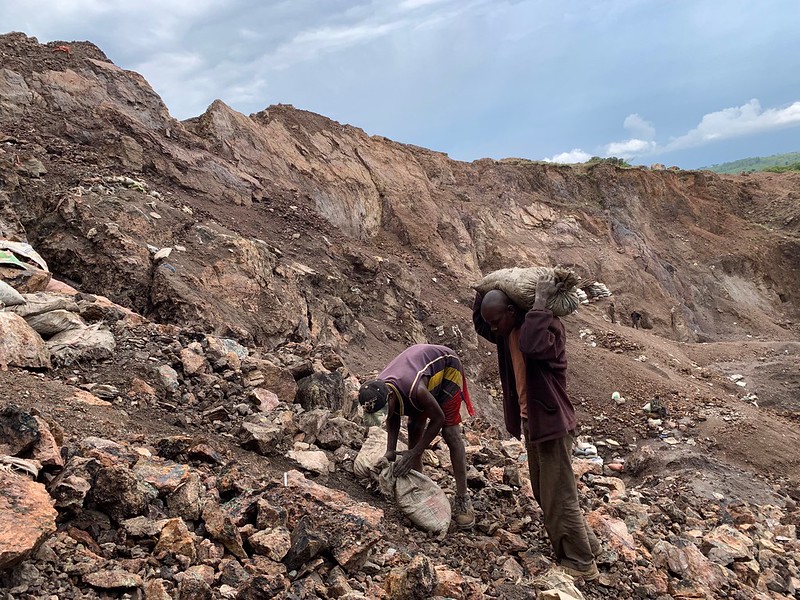The Effects of Cobalt Mining in the DRC

In recent years, the world has seen a growing demand for mined materials because of the growing popularity of crystals and semiprecious gems. Included in the demand for mined materials is cobalt, which is increasingly necessary due to its role in electric vehicle (EV) manufacturing. In fact, about “24% of the total cobalt demand” stems from EV production and the demand will continue to increase as more people continue to buy EVs. A prominent stakeholder in the crystal and mineral industry is the Democratic Republic of Congo (DRC), which produces “more than 70% of the world’s cobalt,” along with other semi-precious gems, crystals and gold. Of the cobalt mined, smaller mining operations, many without licenses, produce 15%-30%. The DRC government has failed to enforce proper accountability and ethics within cobalt mining in the DRC. This, combined with years of strict rule and war, has resulted in many people in the mining sector suffering human rights issues.
Human Rights Violations in DRC Mines
Cobalt mining in the DRC is rife with human rights abuses, such as the use of child labor. According to Amnesty International, an estimated 40,000 children are employed in artisanal mining in the DRC. A lack of proper safety precautions is also common practice and accidents frequently occur. Additionally, miners are usually subject to opportunist, abusive and exploitative mining firms, earning unlivable wages.
While it would be ideal for people within the mining industry to look toward alternative work, conditions in the DRC mean employment opportunities are scarce. Data from 2018 indicates that about 73% of the DRC lives in extreme poverty, surviving on less than $1.90 per day — an effect of previous wars and dictatorships. These factors have led to skyrocketing costs of living in the DRC and ravaged land, leaving people desperate to take up any opportunity they can find to survive. Since the nation sits on top of a large cobalt reserve that experts estimate holds more than 50% of the world’s cobalt supply, working in the mining industry in the DRC has more financial promise than other sectors, which imports dominate.
The lack of industry regulation allows exploitative practices to continue, but it also presents a public health crisis. Without the proper safety gear, miners of all ages experience continuing exposure to dust and particles that result in lung and skin diseases, like tuberculosis or dermatitis.
Solutions to Mining Injustices
In recent years, awareness around mining exploitation has been increasing, largely due to the fact that the industry is expanding along with technology. In 2020, several online activists brought attention to the human rights abuses within the artisanal mining industry by creating “the hashtag #NoCongoNoPhone to fight against the cobalt supply chain that fosters child labor and the exploitation of small-scale artisanal miners.”
Additionally, cobalt mining in the DRC is about to experience a regulation shift. Reuters reported in May 2021 that the DRC government is working with the Enterprise Generale du Cobalt (EGC) to establish control over the artisanal cobalt mining sector and obtain a monopoly over Congolese cobalt production. EGC is also partnering with PACT, an NGO in the global artisanal mining industry, to oversee and implement mining condition reforms in the DRC. Furthermore, EGC is working with a commodity and logistics giant, Trafigura, in order to provide “support on traceability down the supply chain.” The EGC will create “a price sharing formula” that splits mining profits between the private company, the miners and the government.
This model underwent testing at the Mutoshi copper mine and proved to be extremely helpful to local economies while also bringing about socio-economic benefits. In the trial, about 5,000 workers were part of a formal system, with PACT and Trafigura regulating the mining activities and pay. Miners reported reduced health expenditure due to better working conditions and “reduced workplace harassment for women,” among other positive impacts.
Looking Ahead
The mining industry in the DRC has suffered because of the lack of mechanisms put in place for accountability. While NGOs do important work on advocacy and mitigating the effects of broken systems, they have not been able to reach the roots of mining exploitation. However, the efforts of NGOs are now combining with those of the government and offer much hope in tackling human rights abuses within the mining industry.
– Hariana Sethi
Photo: Flickr
